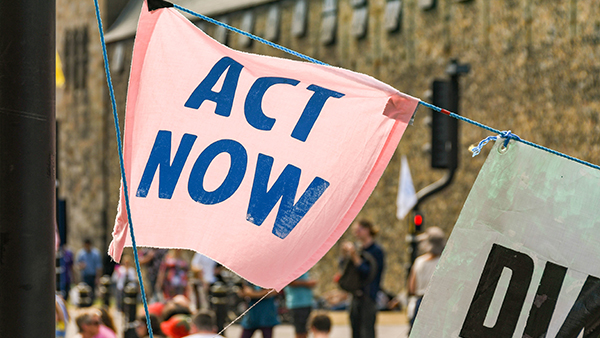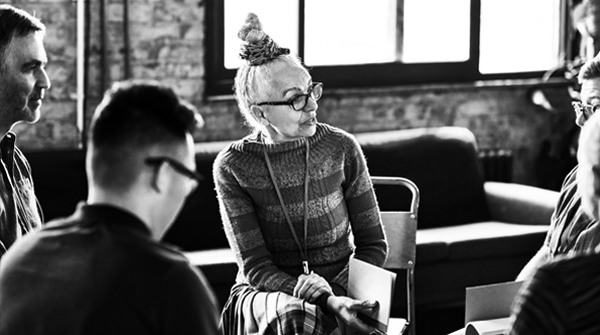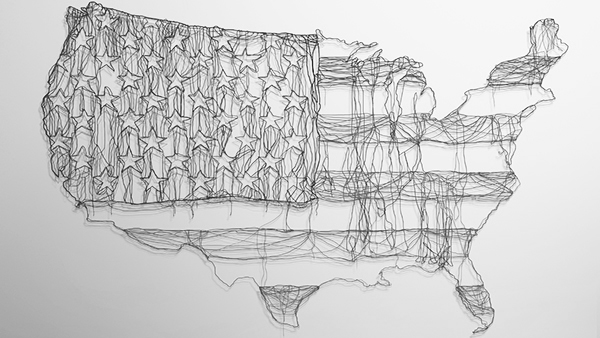A lively argument on the Today programme (at 30 minutes) offered a fascinating example of cultural theory.
Regular readers will know of my enthusiasm for a school of thought which labours under the unhelpfully vague title ‘cultural theory’. I offered my own interpretation of the theory in my annual lecture last year, as well as applying it to key challenges facing modern Britain (Read 'Power Failure' p.10). To recap in the briefest of ways, the theory identifies four ways of thinking about and approaching complex organisational or social change: the hierarchical perspective (think leadership, strategy, bureaucracy), the solidaristic (think tribe, values, community), the individualistic (think acquisitiveness, markets, enterprise) and the fatalistic (think apathy, scepticism).
The theory goes on to argue that the best (‘clumsy’) solutions combine the first three – active - modes (whilst recognising the ubiquity of fatalism) but that these are always difficult to create and sustain because each perspective gains much of its legitimacy and energy from its critique of the others.
There are lots of interesting implications and applications of the theory, many of which I have written about over the years. The Today programme item brought alive an example of what happens when the different ways of thinking are aligned in a particular way.
The debate was over Greenpeace’s continuing opposition to all forms of Genetically Modified food, and in particular, ‘golden rice’. The crop holds out the possibility of major advances against the scourge of vitamin A deficiency, which every year costs the lives of hundreds of thousands of poor people in the developing world and the sight of hundreds of thousands more.
Presenter James Naughtie chaired a very lively debate between two environmentalists, both with strong and impressive records of research and activism. On one side was Mark Lynas arguing against the Greenpeace line, on the other was Dr Tony Juniper defending opposition to GM.
At the end of the debate Naughtie said ‘well, that has given us a very clear picture of where the dividing line is!’
So it had - but not just of the issue itself. Also on display was a classic confrontation between cultural paradigms.
The ‘Allow Golden Rice Now’ campaign which Lynas was promoting is a combination of the hierarchical case (a big solution backed by scientific experts and deliverable by bureaucracies) and the individualistic one (solving problems through markets and technological innovation). These two perspectives are ranged against a solidaristic critique, suspicious of big business, hostile to top down solutions and instead emphasising the need to change power structures and promote different values and behaviours amongst both power holders and subsistence farmers.
The structure of the debate was Lynas on the attack and Juniper on the defence, which reflected the two-against-one balance of the debate. Because many of us feel guilty about our lack of action on the environment (and due to a generally misplaced tendency to trust NGOs more than Government or big business) we are inclined to defer to Greenpeace on environmental issues but here were the other perspectives seeing they at last had their chance to kick back.
Listening again to the debate I formed some tentative conclusions:
It is rare to hear the different perspectives so clearly aligned in alliance and opposition – that’s why the debate was so fascinating - but such differences can often be discerned in more opaque debates.
The divides between cultural perspectives receive much less attention than more obvious ones (which often overlay them) – such as left versus right – but they can be more important in explaining why the right (‘clumsy’) solution isn’t found and wrong (‘elegant’) ones promoted.
When there is such a clear alignment of two against one (and many traditionally solidaristic voices in this space don’t agree with Greenpeace) the one is likely to lose. If I were Greenpeace I would be planning an elegant retreat from this particular battle.
And – if the NGO does change its stance - progressive advocates of Golden Rice wanting to introduce the crop while avoiding the dangers of farmers being dependent on big business, or technology being used as an excuse not to address issues of power and engagement, could do a lot worse than getting the advice of Greenpeace: thus a ‘clumsy solution’.
Related articles
-
The public are ready to go further and faster on net zero
Anthony Painter
The public are ahead of policy-makers and, indeed, most of the business world. COP26 is an enormous opportunity to catch up. Global leaders should take it.
-
Can progressives ever stop the in-fighting?
Matthew Taylor
Biden's victory has caused the left and moderates to fracture again.
-
Can President Biden bring America together again?
Anthony Painter
There is a long road ahead for the new president.




Be the first to write a comment
Comments
Please login to post a comment or reply
Don't have an account? Click here to register.